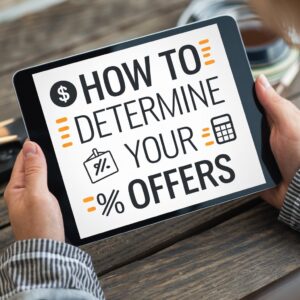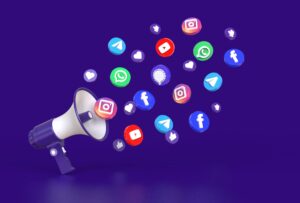You can plan the most spectacular event ever seen, but it’s only a success when people show up. While any crowd is good, the best attendees for your event are high-quality prospects and customers that will lead to business growth and sales. This guide to event marketing will help you effectively promote your event to the right people.

What Is Event Marketing?
Event marketing promotes your brand through in-person or virtual events. For many businesses, events can be a significant source of visibility and revenue. Event marketing includes the strategies you use to reach your target audience and achieve your business goals.
Your event marketing goals may include targets such as:
- Promoting a sales event or new product line
- Expanding into a new audience
- Boosting annual sales
- Increasing brand awareness or engagement
- Generating leads
- Increasing customer loyalty by providing value
Each event is different and deserves customized marketing. Understanding your audience and the culture of your event is key to a winning marketing strategy.
What Are the Steps to Event Marketing?
There are several steps to a successful event. They include:
- Understanding your target audience and why they want to attend
- Planning an engaging and relevant event
- Scheduling event activities
- Marketing the event
- Managing the event
- Promoting your brand and products or services during the event
- Getting feedback from your event attendees
Why Is This Event Important?
The first question to ask before you begin marketing your event is, why? Why is this event important? What is the goal for the business and the benefits to the attendee?
Your answers to these questions will identify your primary marketing objectives and set you on the road to a successful event. Knowing why people should attend your event—what’s in it for them—will help direct your marketing strategy.
As you think about the attendee experience, list the benefits they will receive by coming to your event. Making the benefits clear and simple will get the most people in the door (or logging on).
If your business has a social media following, you can use social media platforms to test different “event elevator pitches” to see which ones resonate with your audience. Once you find a message that works, you can use social media advertising to reach a larger audience as part of your marketing campaign. More importantly, though, you’ll have a tested message.
Identify Your Audience Personas
Before diving into the meat of your campaign, identify one to five audience personas. Personas or avatars are fictional versions of your target attendee.
Imagine you are an auto dealership. One of the target attendees for your event is a man between 40 and 55 with significant disposable income who loves to have all the new technology as soon as it comes out. One of your audience personas could be Mike, a 48-year-old plastic surgeon with two kids who wants the same speed, luxury, and technology in his family SUV as in his personal daily car.
What motivates Mike, and what are his struggles? A lack of time is probably one of his struggles, and he likely wants technology that streamlines his life and makes it easier. Filling in your audience persona with personal details, fears, desires, and pain points will help you write messaging that will connect directly with men like Mike.
You can use your knowledge of your customers combined with analytics and data from past events, email marketing, and digital marketing campaigns.
Select Your Marketing Channels
Your marketing strategy will be as unique as your business and event. Before you decide which channels to use, here are some questions that will help you identify where you can reach your audience.
For each audience persona, ask:
- How does this person consume content?
- What technology and social media do they use?
- How much time do they have?
- How much disposable income do they have?
- When are they most likely to engage with media or be online?
- Who do they listen to, and what type of influencer would impress them?
Depending on the answers to these questions, here are several ways to market your event.
1. Social Media Advertising
Even if you have a sizable social media following, using social media advertising vastly expands your reach. For example, only a tiny percentage, possibly fewer than 1%, of the people who like your Facebook page will see your posts organically.
Social media advertising expands your reach while targeting the audience you want to reach. You can develop posts for each audience persona.
2. Video Marketing
You can use short videos on several platforms, including YouTube, Facebook, Instagram, TikTok, and pay-per-click (PPC) ads.
Videos are engaging and may be more memorable than static images. However, if you use video marketing, it’s critical to hook viewers immediately.
3. Partner With Influential Guest Speakers or Celebrities
Partnering with speakers or celebrities your audience finds relevant and influential is a great way to get people in the door to your event. Depending on your budget and the size of your event, you may have to think creatively to find the right person or people.
You don’t have to blow your entire budget on an expensive guest speaker. Instead, you can get creative and think about who your audience wants to hear from and whom they may come out to meet. Your list may include local celebrities, popular podcasters, or social media influencers.
4. Run Email Marketing Campaigns
Your email list is full of people who already know and like your brand. They are the ideal audience for your upcoming event.
If you already segment your email marketing campaigns by audience demographics or other criteria, creating campaigns for each audience segment is a great idea.
Don’t expect everyone to respond after a single email. Send at least three sequences, building positive expectations and excitement. Also, make sure there is an easy way for people to share your emails in case they know someone who will be interested.
5. Use Countdowns
One way to build excitement and create a buzz for an event is to add a countdown to your social media posts, email announcements, blog posts, and on your website.
People are sometimes moved to action by scarcity. The feeling that they are running out of time can entice holdouts to go ahead and register.
6. Search Engine Marketing
Search Engine Marketing (SEM) includes paid search, display advertising, discovery advertising, and video marketing on search engines like Google and Bing. You can use SEM to target people with specific demographics, locations, and interests.
Paid search is text-only ads that appear at the top of search results. They are most effective if people are already searching for an event like yours.
Display advertising is static images that appear across different websites and apps. Use display ads to share the most exciting and relevant details of your event, like guest speakers or big discounts.
Discovery advertising is also static image ads. However, instead of building awareness like display ads, they are designed to target people most likely to engage.
7. Content Marketing
Content marketing includes blogs and articles that describe the event and build expectations. You can publish them on your website or create guest posts for websites that target your audience persona.
Another great way to use content marketing to promote your event is to publish articles in online or printed news publications. In addition to accessing their audience, you can gain credibility through third-party publishing.
8. Direct Mail
Direct mail is an oldie but a goodie. If you have a long customer list without email addresses or want to invite people who aren’t on your email list, direct mail can be an effective way to reach them.
9. Actively Encourage Participants To Share
With all of your digital marketing efforts, from email marketing to social media advertising, encourage people to share. Everyone you can reach who wants to attend the event probably knows one to several other people who are interested.
If you are very specific in your targeting, you can include details to help people know who to invite. For example, “let your friends and coworkers who love to get the latest tech know about this unique event.”

Event Marketing Tips
Here are a few keys to a successful event marketing campaign:
Use a Dedicated Landing Page
Don’t just send people to a generic page on your website or a simple registration page. A dedicated landing page builds excitement and evokes the feeling and benefits of the event.
Use eye-catching visuals for a winning landing page and focus on a single conversion goal. For example, don’t ask them to sign up for your newsletter or buy tickets. Give them a straightforward thing to do.
If your audience personas are very different, you can create separate landing pages to cater to each. If you have videos or images from past events, those can be great to include on your landing page.
Ensure you include all the important details: who, what, when, where, and how. Place the call to action prominently and clearly. Give them several chances to take action if it’s a long page.
Focus on Benefits, Not Features
Your audience wants to know how this event will benefit them. What will they experience, receive, or learn? In your marketing, emphasize how your event will help your audience.
For example, if you will host guest speakers, don’t just list their names. Explain why each speaker is relevant and exciting, what they deliver, and why your audience is interested.
Don’t Expect Everyone to Sign Up After One Exposure
Only a tiny percentage of people purchase or take action after a single exposure. The rule of seven says that brands that expose a prospect seven times are most likely to earn their business.
Orchestrate your event marketing campaign to deliver repeated opportunities, each with something new, to give your prospects time to get comfortable and take action. At the same time, you don’t want to bombard them with several daily posts or emails.
This is where practical planning comes into play. You want to start marketing your event far enough in advance to give your audience multiple opportunities to participate without overwhelming them or seeming obnoxious.
For Education and Fun
Events can be a wonderful way to broaden your market, increase customer loyalty, and boost sales. When you make people feel a part of something bigger, you bring your brand to life for them.
Effectively planning and marketing your event can be a lot of work. However, if you do it right, you’re helping to build loyal customers and ardent fans.
At J&L Marketing, we have extensive experience in event marketing. Contact us today if you have any questions about marketing your event or want to see how we can help.



